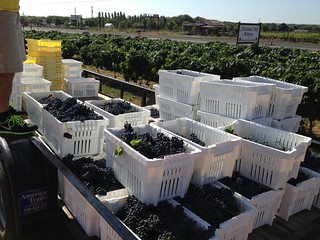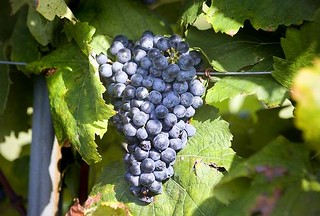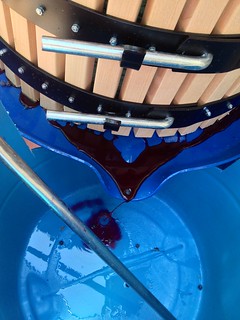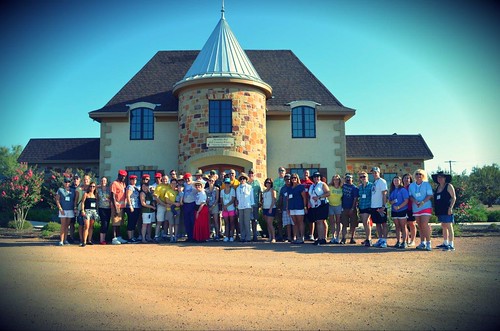Head Training at Messina Hof Hill Country
08.13.13
Messina Hof Winery and the Bonarrigo family are changing the future of Texas viticulture by looking into the  past. The grapevine is that ancient vine that bears joyful fruit and that is such an important part of family occasions. As we look back in history we must look forward towards a new and more productive way of growing grapes in Texas.
past. The grapevine is that ancient vine that bears joyful fruit and that is such an important part of family occasions. As we look back in history we must look forward towards a new and more productive way of growing grapes in Texas.
The Lenoir grape, that mysterious grape that has American roots, a touch of French, and a touch of Spanish, instinctively grows the way of the ancient grapes in the shape of a small bush. Andrew Fuller discussed “Le Noir” and highlighted head training as the best pruning type for challenging soils in his 1867 book Grape Culturist: A treatise on the Cultivation of the Native Grape.
Grape.
The head trained vine is planted and staked; the trunk is grown to 4 ft. In height and pruned which stimulates canes growing out of the trunk. These canes are allowed to cascade like an umbrella and the fruit develops under that umbrella very close to the trunk.
The majesty of seeing a head trained grapevine standing alone overcoming all obstacles is one of wonder. The vineyards of the Douro and Rioja are excellent examples of head trained vineyards where the vine seeks its own source of water, overcomes winds, develops its strong trunk and perfectly ripened fruit shaded only by the cascading arms and the foliage developed from those arms. These growing conditions relate perfectly to those in our Texas Hill Country.
 Our Messina Hof Hill Country vineyard is head trained. It is planted in the traditional European meter by meter density. This allows for reduced production from each individual plant yet the density allows for up to 1800 plants per acre. The head trained plant also allows the fruit to be protected by its umbrella and due to its lower stature reduces the ill effect of wind and increases the warming effect of the earth reducing the risk of spring freezes. Due to its shorter stature the vine requires less water and is more draught tolerant.
Our Messina Hof Hill Country vineyard is head trained. It is planted in the traditional European meter by meter density. This allows for reduced production from each individual plant yet the density allows for up to 1800 plants per acre. The head trained plant also allows the fruit to be protected by its umbrella and due to its lower stature reduces the ill effect of wind and increases the warming effect of the earth reducing the risk of spring freezes. Due to its shorter stature the vine requires less water and is more draught tolerant.
The head trained vine can be brought into production within 2 years and significantly reduces the initial cost of vineyard installation due to elimination of a trellis system. The expectation of production is 4-6 tons per acre.
within 2 years and significantly reduces the initial cost of vineyard installation due to elimination of a trellis system. The expectation of production is 4-6 tons per acre.
The flavor profile of the vineyard is part of the mystery of what is yet to be revealed. Limestone soils of Messina Hof Hill Country will produce intense flavor. What we can say is that the actual chemistry of the juice was near perfection with 24% sugar, perfect acid and ph and a dark berry flavor and aroma. The clusters were within 8” of the trunk along each cane. Each of 6 canes had 1-2 clusters.
Lenoir is a free flowing red juiced grape and the skin color was near black. We immediately pressed it and then used the traditional Portuguese technique of brandy addition to create the 18.5 alcohol. Now comes the 4-8 weeks of settling where the solids fall to the bottom of the variable capacity tank. Then the wine will go into new French and American oak for aging and when the wine is perfect it will be released.
We look forward to doing comparative tasting with the Hill Country Grand Reserve Port using head trained vines and traditional port production versus our Papa Paulo Messina Hof Port developed without brandy addition technique. Our hope is to show the wonderful diversity of grape growing in Texas and in winemaking with the Lenoir grape that is as bold and powerful as our great state of Texas.


